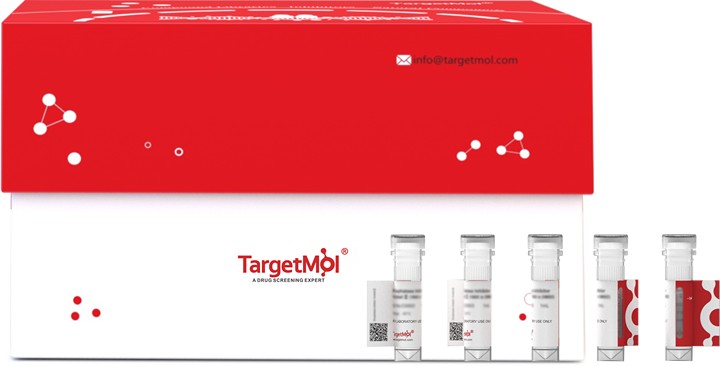Shopping Cart
Remove All Your shopping cart is currently empty
Your shopping cart is currently empty
IFNGR2 Protein, Human, Recombinant is expressed in CHO Cells. The accession number is P38484.

| Pack Size | Price | USA Warehouse | Global Warehouse | Quantity |
|---|---|---|---|---|
| 5 μg | $71 | 7-10 days | 7-10 days | |
| 10 μg | $113 | 7-10 days | 7-10 days | |
| 20 μg | $168 | 7-10 days | 7-10 days | |
| 50 μg | $297 | 7-10 days | 7-10 days |
| Biological Activity | ED 50 < 0.1 μg/ml, measured in a cell cytotoxicity assay using HT-29 (HTB-38) cells in the presence of 1.0 ng/ml human IFN-gamma. |
| Description | IFNGR2 Protein, Human, Recombinant is expressed in CHO Cells. The accession number is P38484. |
| Species | Human |
| Expression System | CHO Cells |
| Tag | Tag Free |
| Accession Number | P38484 |
| Synonyms | IFNGT1,IFNGR2 |
| Construction | Ser28-Gln247 |
| Protein Purity | > 95% as determined by SDS-PAGE |
| Molecular Weight | 38~40 kDa (Reducing conditions) |
| Endotoxin | < 0.2 EU/μg of protein as determined by the LAL method. |
| Formulation | Lyophilized from a 0.2 μm filtered solution in PBS. |
| Reconstitution | Reconstitute the lyophilized protein in sterile deionized water. The product concentration should not be less than 100 μg/ml. Before opening, centrifuge the tube to collect powder at the bottom. After adding the reconstitution buffer, avoid vortexing or pipetting for mixing. |
| Stability & Storage | Upon receiving, this product remains stable for up to 6 months at lower than -70°C. Upon reconstitution, the product should be stable for up to 1 week at 4°C or up to 3 months at -20°C. For long term storage it is recommended that a carrier protein (example 0.1% BSA) be added. Avoid repeated freeze-thaw cycles. |
| Shipping | In general, Lyophilized powders are shipping with blue ice. Solutions are shipping with dry ice. |
| Research Background | IFN-gamma Receptor II, also known as IFNGR2 and IFNGT1, is a transmembrane protein belonging to the type II cytokine receptor family. IFNGR2 is a non-ligand-binding beta chain of the IFN-gamma receptor. It is an integral part of the IFN-gamma signaling transduction pathway and is likely to interact with GAF, JAK1 and JAK2. Defects in IFNGR2 are a cause of autosomal recessive Mendelian susceptibility to mycobacterial disease (MSMD), also known as familial disseminated atypical mycobacterial infection. |
| Size | Quantity | Unit Price | Amount | Operation |
|---|

Copyright © 2015-2026 TargetMol Chemicals Inc. All Rights Reserved.